By Don Radebaugh — SYLVANIA, Ohio — Most people recognize Secret Service agents as those mysterious, stone-faced guys in dark glasses and trench coats who surround the American President, full-well ready, willing and able to pour bullets into anyone intent on bringing harm to the Commander in Chief. Unfortunately for Abraham Lincoln, they showed up three months too late. Ironically, it was Lincoln, on the day he was assassinated, who put the concept of the Secret Service permanently in motion.
Beyond the interesting and fascinating facts that always complement history, it’s the irony in it that often jumps out the most to me…irony mixed with twists and turns that can hinge on miracles.
For instance, if the British military — at the time the most powerful military in the world — would have prosecuted the Revolutionary War more aggressively in the beginning stages, the United States of America may never have been. Or like Gettysburg where the Northern and Southern armies more or less stumbled upon each other. Ironically, the North came in from the South, and the South came in from the North.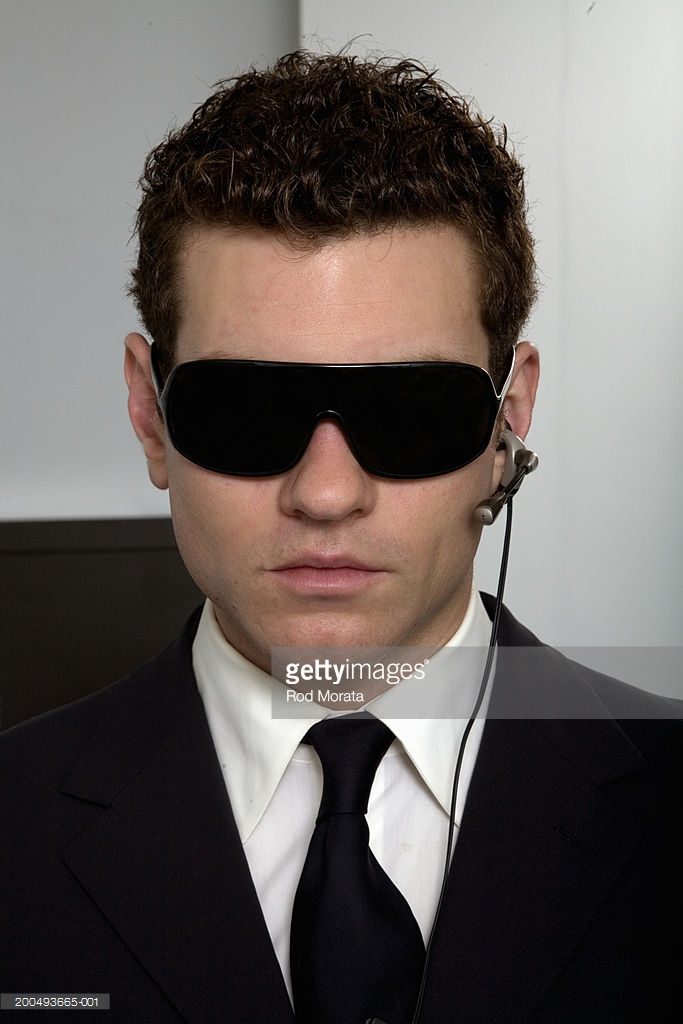
There are countless examples of irony in history; the creation of the Secret Service certainly ranks right up there.
Today, the United States Secret Service is the country’s premier federal law enforcement agency under the U.S. Department of Homeland Security. Basically, it’s two-fold with investigative and protective missions. On the investigative side, it safeguards against a wide range of financial and electronic-based crime. On the protective side, its mission is to ensure the safety of the President of the United States, the Vice President, their immediate families, former Presidents and their families, even presidential and vice-presidential candidates.
The Secret Service was officially formed in July of 1865. Before that, it was four guys working for the Treasury department assigned with the lone task of tracking down counterfeiters. Counterfeiting was a huge problem for the country because it was literally undermining the financial institutions of the United States. Counterfeiters were also notorious for weird one-offs, like the rag-tag band of misfits who tried to steal Lincoln’s body in 1876 (Stealing Lincoln’s Body…FULL STORY).
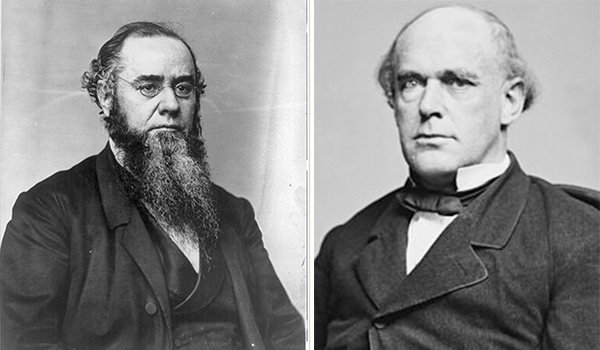
Counterfeiting was a huge problem in America’s early years, certainly during the Civil War (1861-1865) when the U.S. Treasury Department was already cash-strapped, trying to fund a war it could not afford. By 1864, approximately half the paper money in circulation in the North was counterfeit. If the American public lost faith in paper money, already in wide circulation, then the federal government would not have been unable to finance the war. It was also in 1864 when Secretary of Treasury Salmon Chase asked Secretary of War Edwin Stanton if the Treasury Department could hire William P. Wood for the specific task of tracking down counterfeiters. Wood, a warden at the Old Capitol Prison, already ran on a reputation as a shady character, and was familiar with the practice of counterfeiting. Kind of like hiring criminals to track down criminals. But America, in the middle of the Civil War, was in crisis mode in more ways than one. Counterfeiting had to be dealt with now, or the entire Union cause could go down the drain.
Wood, in turn, hired his own band of cronies to go after counterfeiters. His first recruit, already involved in a counterfeiting ring, was plucked out of a Chicago jail. His second pick was a guy who had been making counterfeit money in New Jersey. His third was under arrest for forgery and suspected of murdering five men. Sounds like quite a mob.
Wood’s men used a variety of scams to catch counterfeiters. And, a counterfeiter who had earned, or bought the good graces of Wood, could also count on having the Secret Service’s help in court if necessary, and even testify on behalf of the “crooks.”
If Wood’s methods were criminal and scandalous, so be it; they also worked. In less than a year, Wood bragged, “I rounded up counterfeiters in nearly every state east of the Alleghenies.” And, he was right. Wood and his unscrupulous band of agents seized over 200 counterfeiters in relatively short order.
All that said, the Secret Service was proving to be invaluable beyond measure, safeguarding the country’s financial health in the crucible of the moment. However, a new job description would soon be required for Wood and his criminal mob way beyond their investigative nature.
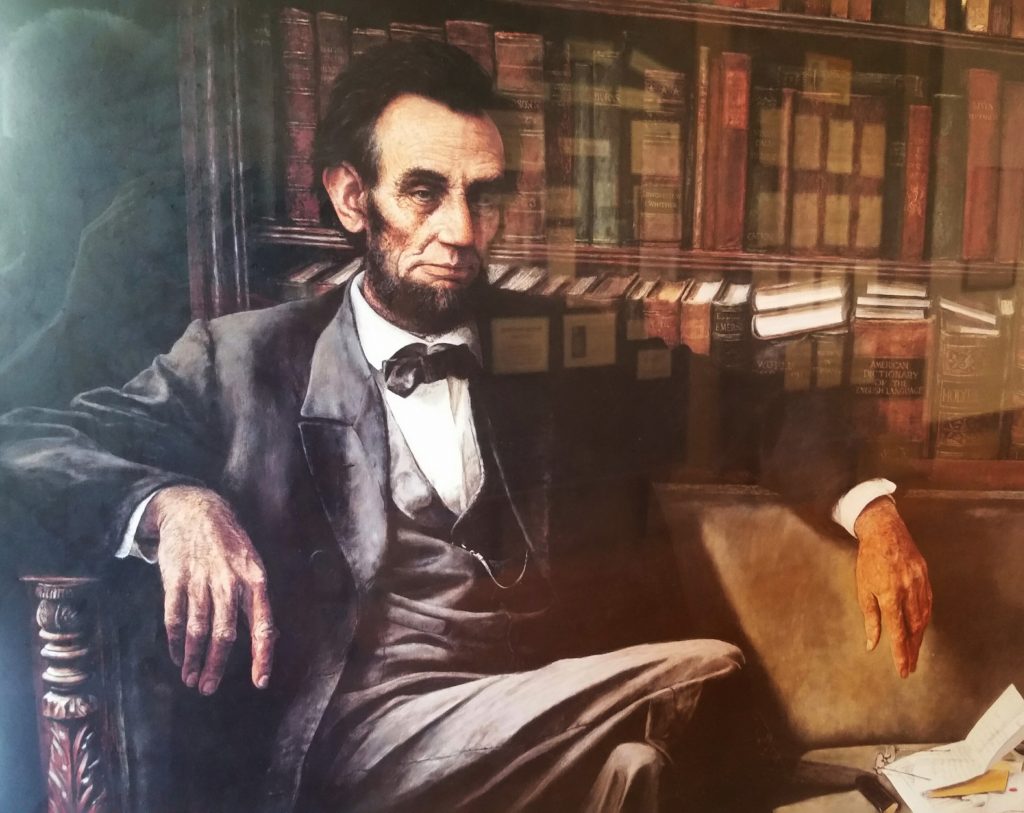 Saturday, April 14, 1865 brought hope and excitement to the Lincoln household (White House). Lee had surrendered to Grant just days before (April 9) and the Lincolns’ oldest son Robert Todd was home from college. An early afternoon carriage ride was on the way for Abraham and Mary, during which both would talk openly about their children and the bright future ahead for a newly-united America. To cap it off, both could look forward to the theatre production “Our American Cousin” at Ford’s Theater later that night. The day went off just as planned. Unfortunately, it didn’t end that way after John Wilkes Booth, an actor and Confederate sympathizer — who by the way didn’t have the courage to fight for his cause — fired a bullet into the back of Lincoln’s head at about 10:15 p.m. The President died at 7:22 a.m. the next day in a boarding house across the street.
Saturday, April 14, 1865 brought hope and excitement to the Lincoln household (White House). Lee had surrendered to Grant just days before (April 9) and the Lincolns’ oldest son Robert Todd was home from college. An early afternoon carriage ride was on the way for Abraham and Mary, during which both would talk openly about their children and the bright future ahead for a newly-united America. To cap it off, both could look forward to the theatre production “Our American Cousin” at Ford’s Theater later that night. The day went off just as planned. Unfortunately, it didn’t end that way after John Wilkes Booth, an actor and Confederate sympathizer — who by the way didn’t have the courage to fight for his cause — fired a bullet into the back of Lincoln’s head at about 10:15 p.m. The President died at 7:22 a.m. the next day in a boarding house across the street.
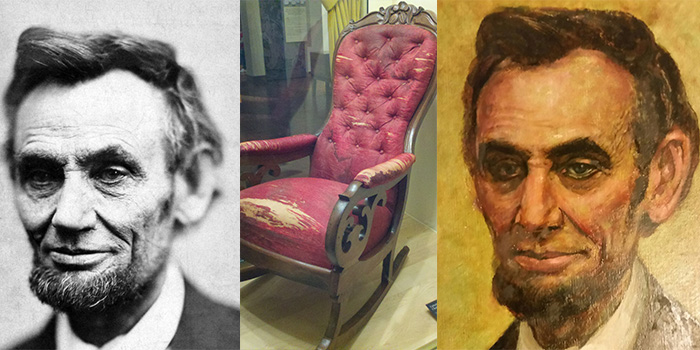
Ironically, Hugh McCulloch, who replaced Chase as the Treasury Secretary in Lincoln’s second term, always claimed to have had a conversation with Lincoln on that fateful day, regarding the country’s counterfeit issues. After laying out the counterfeit problems the country faced, McCulloch recommended the creation of a permanent organization of government operatives trained to target counterfeiters. After hearing McCulloch out, Lincoln said, “Work it out your own way, Hugh. I believe you have the right idea.”
But McCulloch’s “right idea” would go on hold for three months while the government dealt with the assassination of Lincoln, and the arrest, trial, conviction and execution of the conspirators who planned the evil scheme. Therefore, it was not until July 5, 1865 that William Wood was sworn in as the first chief of the United States Secret Service. To accommodate the new responsibilities of protecting Presidents, Wood immediately hired more men. By the end of 1865, he had as many as 30 Secret Service operatives who under his command. It was the right thing to do; it just wasn’t soon enough for Abraham Lincoln.
NOTE: The body guard assigned to Lincoln at Ford’s Theater was drinking at the bar next door while Lincoln and his wife Mary enjoyed the play. Clearly, the protection of the President was not a priority on April 14, 1865.
Source: Stealing Lincoln’s Body, by Thomas J. Craughwell, copyright 2007.
@DonRadebaugh on Twitter, or History Mystery Man on Facebook.

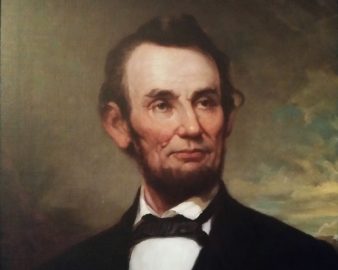
His body guard was drinking at the bar next door while the Lincoln’s were watching the play…no words..